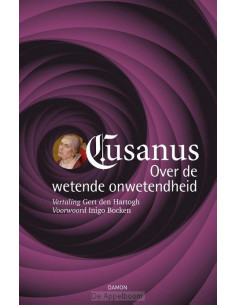Uw winkelwagen
Er zijn geen producten meer in uw winkelwagen
snelle levering verzendkosten binnen NL € 3,95 gratis bezorging vanaf €35,00
Strategies of remembering in greece unde
At the beginning of the first century BC Athens was an independent city bound to Rome through a friendship alliance. By the end of the first century AD the city had been incorporated into the Roman province of Achaea. Along with Athenian independence perished the notion of Greek self-rule. The rest of Achaea was ruled by the governor of Macedonia already since 146 BC, but the numerous defections of Greek cities during the first century BC show that Roman rule was not yet viewed as inevitable.In spite of the definitive loss of self-rule this was not a period of decline. Attica and the Peloponnese were special regions because of their legacy as cultural and religious centres of the Mediterranean. Supported by this legacy communities and individuals engaged actively with the increasing presence of Roman rule and its representatives. The archaeological and epigraphic records attest to the continued economic vitality of the region: buildings, statues, and lavish tombs were still being constructed. There is hence need to counterbalance the traditional discourses of weakness on Roman Greece, and to highlight how acts of remembering were employed as resources in this complex political situation.The legacy of Greece defined Greek and Roman responses to the changing relationship. Both parties looked to the past in shaping their interactions, but how this was done varied widely. Sulla fashioned himself after the tyrant-slayers Harmodius and Aristogeiton, while Athenian ephebes evoked the sea-battles of the Persian Wars to fashion their valour. This interdisciplinary volume traces strategies of remembering in city building, funerary culture, festival and association, honorific practices, Greek literature, and political ideology. The variety of these strategies attests to the vitality of the region. In times of transition the past cannot be ignored: actors use what came before, in diverse and complex ways, in order to build the present.Contents:Preface: Relaunching the Publications of the Netherlands Institute at Athens SeriesW. van de PutIntroductionT.M. Dijkstra, I.N.I. Kuin, M. Moser, D. WeidgenanntPart I: Building Remembrance1. Roman Greece and the 'Mnemonic Turn': Some Critical RemarksD. Grigoropoulos, V. Di Napoli, V. Evangelidis, F. Camia, D. Rogers, S. Vlizos2. Managing Social Roles after Death: The Strategic Use of Tombs in Roman PatrasT.M. Dijkstra3. Contending with the Past in Roman CorinthC. de Grazia Vanderpool, P.D. ScottonPart II: Competing with the Past4. Heritage Societies? Private Associations in Roman Greece(1st century BC to 2nd century AD)B. Eckhardt5. Performing the Past: Ephebic Self-Representation in Roman AthensZ. Newby6. Greek Panhellenic Agones in a Roman Colony: Corinth and the Return of the Isthmian GamesL. del BassoPart III: Honoring Tradition7. Heroes of Their Times. Intra-Mural Burials in the Urban Memorial Landscapes of the Roman PeloponneseJ. Fouquet8. Public Statues as a Strategy of Remembrance in Roman MesseneC. Dickenson9. ?????? ?????? ??? ???????: Commemorating Times of CrisisD. WeidgenanntPart IV: History in Athens10. Political Change in Post-Sullan AthensI.N.I. Kuin11. Public Honours for Roman Friends: The Past as a Political Resource on the Roman AcropolisM. Moser12. The Past in the Present: Athenian Inscriptional Language Regarding the Divine, the Roman Challenge and the Construction of Urban MnemonicsE. FassaEpilogue: A Strabonian Take13. Remembrances and the Regimes of Historicity in the Geography of StraboP. DoukellisConclusion: Change and Remembering in Roman GreeceI.N.I. Kuin, M. Moser
No reviews

















